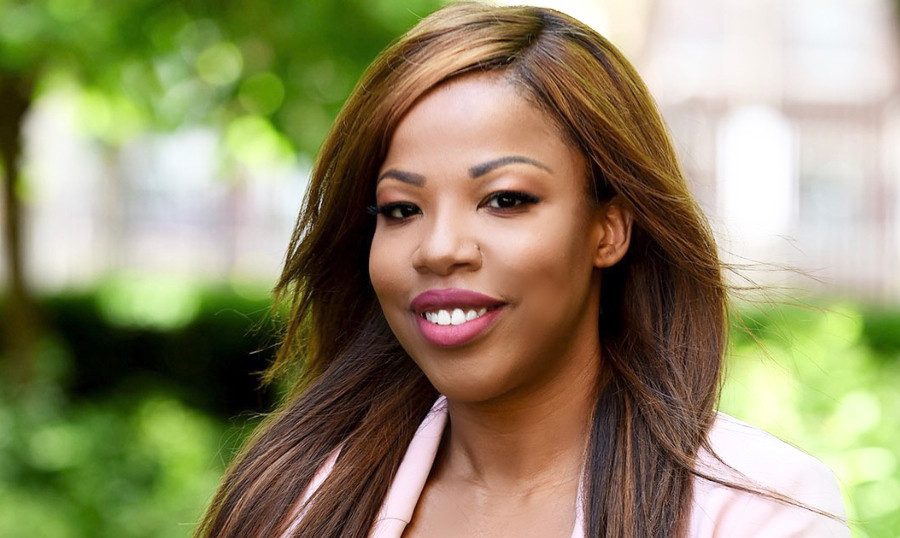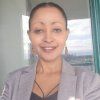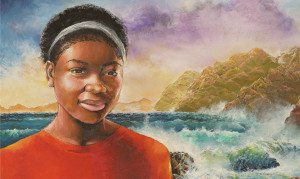Besides her role in iRISE, Bruder is a doctoral student at the University of Toronto's Dalla Lana School of Public Health. Her field of research is in social and behavioural health sciences where she explores women's health, gender-based violence, and human trafficking.
Her fight against human trafficking comes from a very personal place - her own experience as a victim. “I'm a survivor and care deeply about this issue. So this is my lived experience. That's why Project iRISE was founded with the hope of helping survivors build the necessary skills they need to be successful and find sustainable employment,” says Bruder.
Established in April 2020, iRISE is an anti-trafficking agency based in Toronto. Its mission is to educate and empower sex trafficking survivors. Its services include tattoo removal for survivors and developing their employable and leadership skills.
How Does Human Trafficking Happen?
Bruder says human trafficking is an umbrella term that covers multiple forms of exploitation including sexual exploitation, forced labour, forced marriage, and domestic servitude. Historically, human trafficking has been an under-reported crime. The most common form of trafficking in Canada is sex trafficking, followed by labour trafficking, which is gaining momentum in the country.
According to Public Safety Canada, most human trafficking victims come from vulnerable or marginalized communities. Labour trafficking victims are often migrant workers or new immigrants who are on the verge of deportation. “The fear of deportation makes it very less likely for them to report cases of human exploitation,” explains Bruder.
Statistics Canada found that 93% of sex trafficking victims in Canada are Canadian citizens or permanent residents. Moreover, women and girls make up 97% of all reported cases in Canada. Nearly 74% of first victims are under the age of 25. Even though they make up about 4% of the population, Indigenous people account for over 50% of sex trafficking cases.
Bruder argues that this is not necessarily representative of the actual numbers because the available data is all police-reported data. In other words, if the trafficking case has not been reported to the police, they will not show up in the data set.
“We know Indigenous women and girls are disproportionately impacted. But we don't have that same data for Black women and girls. We cannot see the real extent of the problem because currently, the Canadian government does not collect race-based data for sex trafficking.” She continues, “This means we cannot understand why Black women and girls are particularly vulnerable to sex trafficking and develop culturally relevant interventions that address the community's unique needs.”
She further explains that low socio-economic status and adultification of Black girls are the two big contributing factors.
Bruder cites a research survey conducted by Georgetown Law’s Center on Poverty and Inequality in 2019 that says, “…adults think Black girls as young as 5 need less protection and nurturing than their white peers.” For this reason, Black girls are less likely to be considered victims because they are considered more independent and more knowledgeable on sex-related topics.
At this juncture, she calls on the federal government to allocate funding for research and race-based data collection to better understand how racial inequities and barriers to service play a role in the victimization of Black women and girls.
Who are the Traffickers?
Bruder stresses that there is no one-size-fits-all for what a trafficker may look like. They can be men, women, family, or a friend. In fact, 92% of human trafficking victims knew the perpetrator (Statistics Canada 2020).
“This makes it harder for the victim to recognize that they're being trafficked by someone they trust, such as a boyfriend or a best friend, and don't have their guard up. As an outsider, you may not recognize victims. These cases often play out as love stories and you'd never know a person's true intentions,” explains Bruder.
She further explains that trafficking is not always kidnapping or physical violence. “Oftentimes, it's the psychological abuse that traffickers utilize to perpetuate their crime in broad daylight and you are none the wiser because it's practically invisible,” says Bruder.
She adds that traffickers use social media to identify vulnerable people and try to win them over with flattery. This works when the child doesn't have a support system in place. In this regard, Bruder points out that young people are the most vulnerable and need to be educated on human trafficking and healthy relationships.
Signs and Impact of Human Trafficking and Support for Survivors
When it comes to identifying the signs of human trafficking, Bruder says, “You'll notice a dramatic shift in their behaviour. They'll change their dressing style, speak in an unusual way, become more comfortable about sex, gain or lose a lot of weight, feel tired, the list goes on. Any abrupt behavioural change should give parents, teachers, and authorities a cause for concern.”
Again, she strongly advises that education is key. “We should all familiarize ourselves with the signs of human trafficking and identify if someone is being exploited. Everyone has a part to play.”
Bruder appreciates the growing coverage of human trafficking by the media, but she remains skeptical on account of the fact that most cases are often sensationalized, “Are they doing a good job to educate the public about what trafficking actually looks like? I don't know? But I agree they are doing a good job as far as raising awareness that it exists,” says Bruder. She underlines that sharing stories is only one way to raise awareness, but not the only way.
Concerning impacts of human trafficking, Bruder notes that human trafficking can impact the entire community and there's a ripple effect of the damage and the pain of trafficking in someone's life.
There are lifelong health complications for victims of human trafficking including physical injuries, if they were assaulted, or raped, or forced into the sex industry. They also have mental and emotional health problems such as PTSD, depression, anxiety, hopelessness, and suicidal ideation. Substance abuse is also observed among human trafficking victims, often because they were forced into it or use it as a coping mechanism to deal with their trauma.
In addition, survivors have to deal with isolation and stigma. Charlotte (whose name has been changed for this story), is a sex trafficking survivor in Toronto. She says the main challenge facing survivors of human trafficking is being accepted back into society. “Sometimes, you get left alone. This makes it hard to get out of isolation, rebuild your identity, and build a strong support group,” says Charlotte.
For Charlotte, the best way of supporting victims is to make the support system ready, and show them the resources. “When they’re ready, they will come out and use it. You can’t force anybody,” says Charlotte. She goes on to say that when it comes to providing support to survivors of human trafficking, what works for one may not work for the other and victims should be aware of this.
Bruder, meanwhile, stresses the importance of creating a multisectoral and multidisciplinary support system that includes the following:
- social workers
- caseworkers
- educators
- physicians
- psychiatrists or therapists
- lawyers and law enforcement
- people who have shared similar experiences
- friends, family, and the community in general.
“It takes an entire support network to come together and help that person in their healing journey. Recovery times may differ from one person to another. It could take one year or 10 years,” says Bruder.
Canada has a national hotline to discuss human trafficking. The hotline is available round the clock. It’s multi-lingual and completely secure. People can call if they have questions related to trafficking. They can also find support, services, and resources in their area. Including mental health support, substance abuse support, housing, and employment services.
Bruder also acknowledges Public Safety Canada has done a lot of work recently, has updated its website, and created a robust awareness campaign. She hopes that the fight against human trafficking continues to gain momentum. As far as policies and legislation, however, she believes there's more work to be done.
“In Ontario, just recently, the government has mandated that all school boards need to include anti-trafficking training for all school boards, principals, teachers, and other school staff. This is a huge first step in fighting human trafficking and protecting victims,” she explains.
For people who have experienced trafficking, Charlotte strongly encourages them to stay strong and seek help when they are ready.
“It's possible to overcome trauma. Be persistent and believe in yourself. Also, support is really important. If I had no support, I do not know where I would be today,” says Charlotte.
Resources
- - The national human trafficking hotline can be reached at 1 833 900 1010
- You may chat online at:canadianhumantraffickinghotline.ca/chat/
- You may submit a tip through: canadianhumantraffickinghotline.ca/submit-a-tip/
Photo by: Dan Pierce Photography

 By
By 


